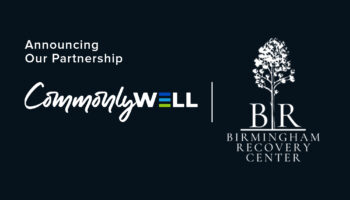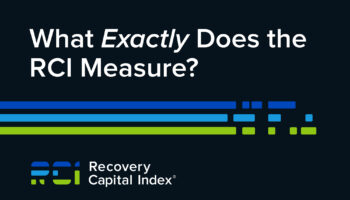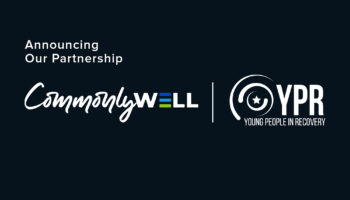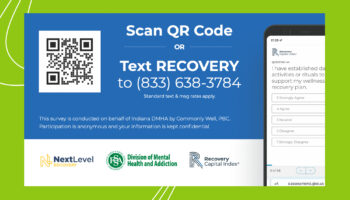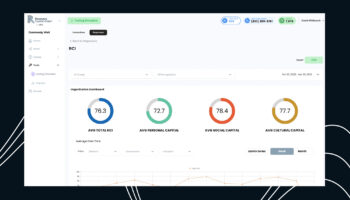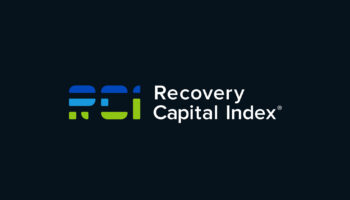Insights & Resources
Filtered by: Recovery Capital
Recovery Intelligence Made Smarter With AI
We’re advancing Recovery Intelligence™ with generative Artificial Intelligence. With the announcement of our new Chief Technology Officer, Justin Smith, and his extensive background in machine learning and AI, it should be no surprise that we are amplifying Commonly Well’s methods with the power of Artificial Intelligence. We’re in the thick of designing a modern iteration of our analytics dashboard and data interactions that will help customers make a bigger impact on their clients’ care.
Read More →By David
10/12/23
Birmingham Recovery Center leverages the Recovery Capital Index to better client lives
"When we started this program... our objective was to do better as a program and to help elevate the services and the perceptions throughout the field. And the RCI is one of those things that just helps us to be better." - Ian Henyon, Executive Director at Birmingham Recovery Center
Read More →By Patrick
7/26/23
1,000+ RCI’s Completed in June
1,017. This was the total number of Recovery Capital Index (RCI) survey's completed in June 2023; and it was the first month with 1,000+ completions since launching Commonly Well at the end of May 2020. It's a milestone worth a few moments of reflection.
Read More →By David
7/3/23
The Recovery Capital Index: A Validated Assessment
The Recovery Capital Index (RCI) measures what it says it measures: addiction wellness. Developed at Face it TOGETHER (FIT) by David Whitesock (now CEO & Founder of Commonly Well), the RCI is built on three domains, nine indicators, and 22 components which have been proven to positively affect recovery and provide a comprehensive assessment of intervention effectiveness.It also focuses on longitudinal health outcomes, giving therapists and peer coaches insights into an individual’s progress, growth, and well-being over time.
Read More →By David
3/28/23
The Three Domains of a Resilient Life
To move beyond sobriety as the only measure of recovery success, we must shine a spotlight on the social determinants of health. The Recovery Capital Index (RCI) achieves this by respecting the entire presence and experience of a person.
Read More →By Patrick
2/28/23
Using Data to Enhance the Journey of Recovery: A Conversation with Young People in Recovery
Commonly Well, the nation’s first recovery intelligence consultancy, has partnered with Young People in Recovery to achieve a comprehensive measure of the substance use recovery journey at an individual, community, and national level. Young People in Recovery (YPR), a national organization that provides life skills and peer support to help people recover from substance use disorder, will use Commonly Well’s Recovery Capital Index (RCI) tool to quantify the effectiveness of its programs. YPR will implement the RCI throughout its network of 56 chapters across 17 states over a two- year period.
Read More →By David
2/15/23
On the origins of recovery capital
Despite popular depictions and tropes of people struggling with addiction, most people overcome alcohol and drug dependencies without the aid of formal treatment.How is this possible?How does someone suffering a “disease” get well without clinical care?That was the question Robert Granfield and William Cloud explored and set out to answer in the late 90s. This understanding could focus social, political, and clinical solutions across the spectrum of addiction and dependency experiences.Recovery capital was the term they coined to encapsulate the physical, social, and human resources that individuals draw upon to naturally recover.
Read More →By David
10/21/22
Measuring beyond sobriety
A person you love seems to care about nothing of importance in their life. They disappear for days, weeks, maybe even months or years. At first, this person’s relationship to alcohol or drugs was no different than anyone else’s. But slowly then all at once, chaos. Addiction takes hold. It’s a vortex. Everyone gets sucked in.
Read More →By David
10/4/22
On our obsession with abstinence
Why do we fixate on sobriety or abstinence regarding addiction and alcohol or drug problems?For so long, the only socially and clinically acceptable outcome was the complete cessation of use for the rest of one’s life."Get on the wagon," they say, "you’re an alcoholic now and forever."Fall off the wagon, you’re a failure.
Read More →By David
9/28/22
ANNOUNCEMENT: Indiana to map state’s recovery capital
The Indiana Family and Social Services Administration’s Division of Mental Health and Addiction today announced the launch of the Recovery Capital Index, designed to measure the sum of resources necessary for an individual to initiate and sustain recovery from addiction and to help track the overall recovery capital of the state and communities.
Read More →By David
6/17/22
Unveiling our new Recovery Capital Index Reporting Tool
With the new RCI aggregate reporting tool, you can immediately see the collective recovery capital for your organization. Filter, focus, and export the data as you need to directly inform recovery and care plans.
Read More →By David
4/20/22
What The West Wing Teaches Us about Recovery Capital
Recovery Capital is a proxy for Resilience.The more recovery capital we have, the better a person experiencing addiction will absorb and bounce back from a negative event.
Read More →By David
3/23/22

